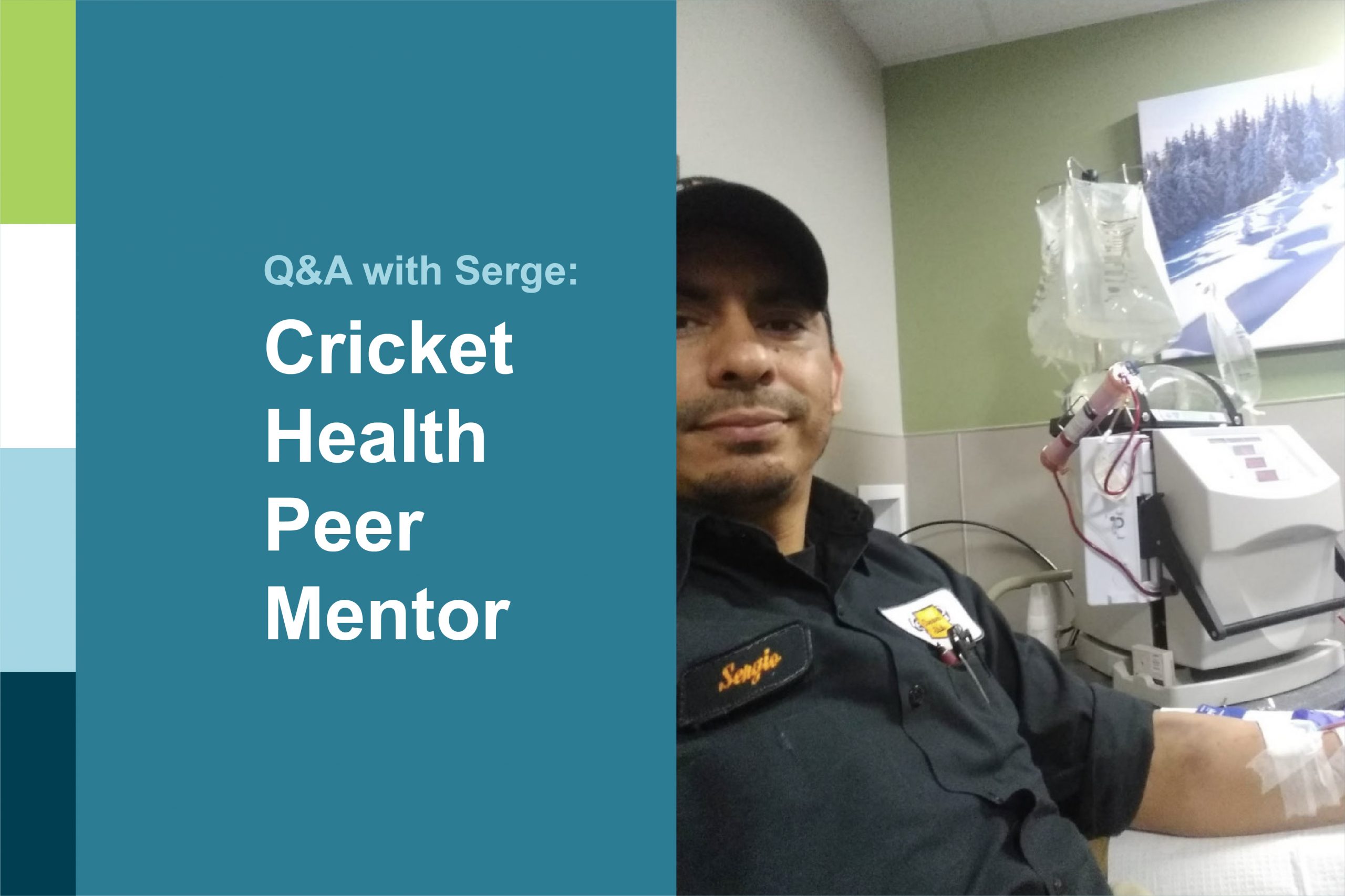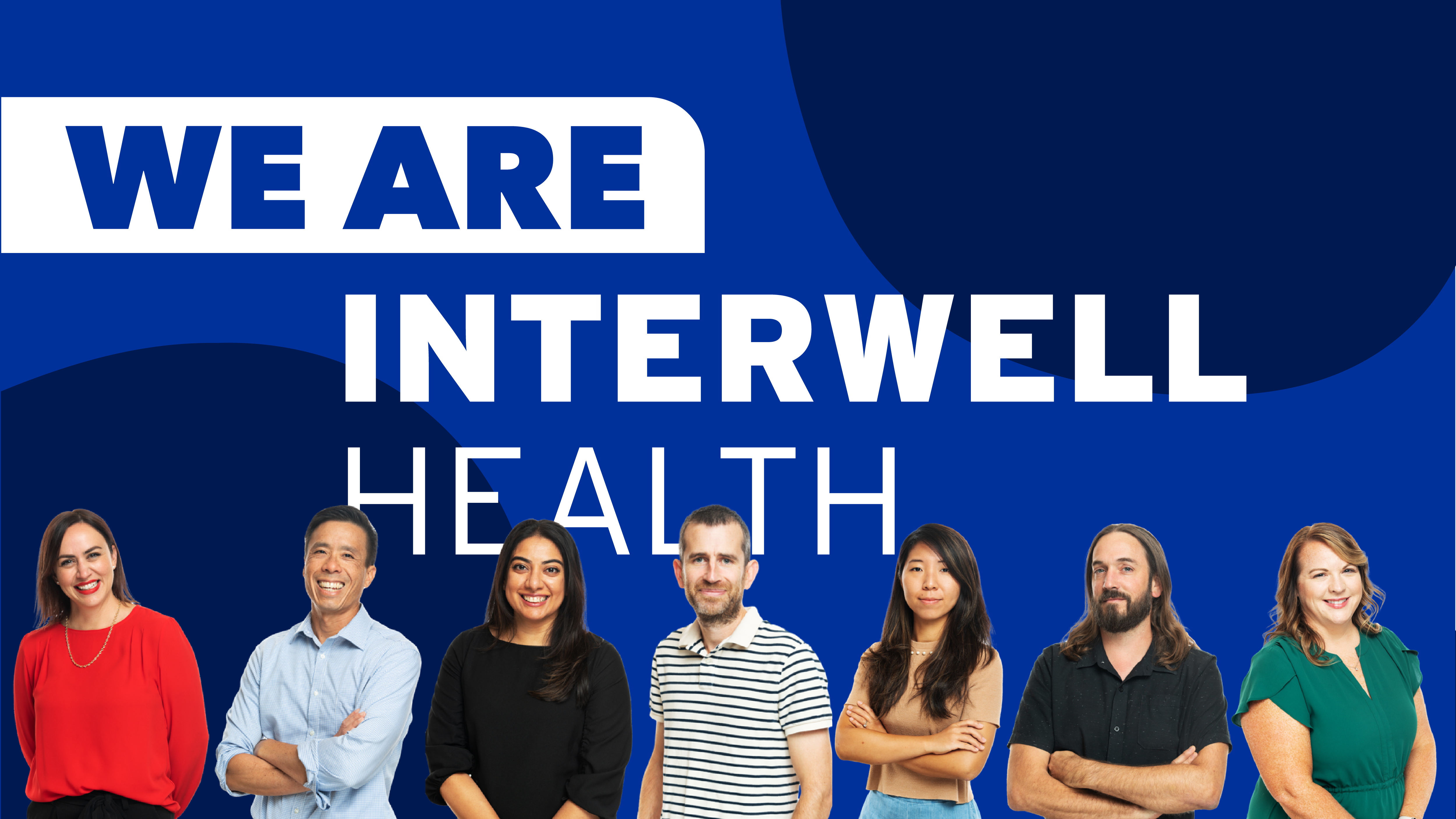As individuals begin their kidney care journey, having the opportunity to speak with others who have gone through the same thing provides confidence and peace of mind. And that’s important. Chronic kidney disease isn’t just hard on the body — adapting to the daily burden of the disease and the lifestyle changes required can be mentally daunting and emotionally draining.
That’s why we put peer support at the core of the Cricket Health experience. Each of our members has a dedicated peer mentor who they can connect with through the MyCricket™ platform. These mentors are trained individuals with kidney disease who want to help new members, providing both advice from someone who has “been there,” as well as emotional support.
Whether it’s online messaging or a phone call, our peer mentors understand what it’s like to live with chronic kidney disease and provide valuable insight for those just beginning their kidney care journey.
We sat down with Serge, a peer mentor at Cricket Health, to discuss the impact of his work.
Cricket Health: Serge, what inspired you to become a peer mentor?
Serge: Kidney disease can weigh heavily on anyone — it can lead to feelings of desperation, anxiety, and even depression. Knowing that you’re not alone makes a huge difference, and since this is something I live with every day, I’m able to connect with other patients in a unique way. I can help show them that it will be okay; being able to do that for people means a lot to me.
Cricket Health: How do you interact with patients?
Serge: Many patients message me on MyCricket, and usually they’ll ask for my perspective on something they’re going through. Others prefer to have a phone conversation, which I really enjoy as well. There’s also a discussion forum for Cricket Health members, where I can post public answers to questions that other patients ask.
Cricket Health: What are some common things that peer mentors discuss?
Serge: We discuss future options for kidney failure treatments, like different types of dialysis. The clinical team at Cricket Health does a fantastic job of laying out the options and helping us maintain good health for whatever option we choose, but it’s still a lot to process.
Even though the doctors and nurses do a great job of explaining these options, it can really help to connect with someone who has gone through it and to hear their experience. It makes it more real rather than theoretical, and that makes it less scary.
Cricket Health: What do patients like about having a peer mentor program?
Serge: The opportunity to discuss their care journey with someone that can really understand it on a personal level. And with Cricket Health’s whole care team, you have access to a nurse, a doctor, a social worker, a dietician — but connecting with someone who actually has the lived experience is so meaningful. The clinicians can provide the best care in the world, but just speaking with another regular person who is on this journey can still make all the difference mentally and emotionally.
Cricket Health: Can you share a story that impacted your or another patient from your time as a peer mentor?
Serge: I recently spoke to a patient whose kidney function declined dramatically in a matter of months. He was, rightfully, anxious and afraid of going into renal failure and needing dialysis sooner rather than later. We spoke on the phone for over an hour and found a great connection, discussing each other’s situations. Before hanging up, he made sure to tell me how much it meant to have someone who is already on dialysis explain what it takes to be on such a treatment. Not only that but sharing our honest opinions, fears, and everything else meant a lot to both of us.
The peer mentor program is just one part of a holistic approach to kidney care. Cricket members also have access to a peer support community to chat with others who are also managing kidney disease about what’s working for them. We also make sure each individual has a full care team to meet needs like:
- Answering questions on their condition,
- Helping them with their medications,
- Identifying community resources when needed, and
- Coordinating care between all involved providers.
In addition to our peer support, our care teams include dietitians, social workers, and pharmacists. This ensures Cricket members have what they need to live their best lives.




